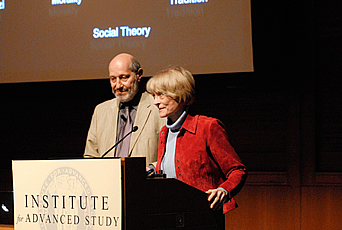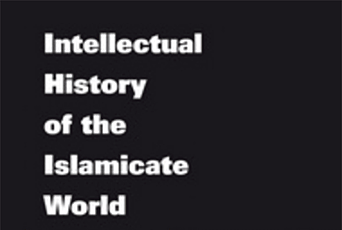Talking Points: Clifford Geertz on America and Islam
We are, in this country right now, engaged in the process of constructing, rather hurriedly, as though we had better quickly get on with it after years of neglect, a standard, public-square image of “Islam.” Until very recently, we had hardly more than the suggestions of such an image—vagrant notions of stallions, harems, deserts, palaces, and chants. A Peter Arno drawing in The New Yorker sixty-five years ago more or less summed the matter up. A stetson-hatted tourist leans out of his roadster to ask a turbaned man prostrate in prayer by the side of the road: “Hey, Jack, which way to Mecca?”
The reason for the rush to change this casual mixture of ignorance and indifference is clear enough: September 11, suicide bombers, Kuta Beach, Osama, Nairobi, the Cole—and now the Iraq war. What isn’t clear, and will not become so for quite some time, is where it all is taking us, what our sense of this obscure and threatening Other that has appeared suddenly—and literally—on our domestic horizon is going ultimately to be. The familiar, almost intimate enemy we precipitously lost with the dissolution of the Soviet Union is being replaced in our minds by something far less well defined, much further removed from the political history of nineteenth- and twentieth-century Europe and America. Communism, with its roots in the Enlightenment and the French Revolution, at least had a Western pedigree. Marx and Lenin emerged from historical backgrounds all too recognizable, with ideological intentions derived, on the face of them, from some of our dearest social hopes. But “Islam,” a creed of Arabs, Turks, Africans, Persians, Central Asians, Indians, Mongols, and Malays, has been rather off our cultural map. What are we Americans to think about an inflamed competitor of which most of us know hardly more than the name?
[...] The American idea of Islam, various, irregular, and charged with foreboding, is being built up at a time when the American idea of America is itself the subject of no little doubt and dispute, and the country as a whole seems embarked on a disconsonant and quarrelsome course. The forms the “What is Islam?” argument takes—“What do they really believe?” “How do they really feel?” “What do they really intend?” “What can we do about them?”—owe as much to domestic divisions, to warring conceptions of our national interest and national purpose, what we believe and feel and intend, as they do to the matted, instable, rapidly changing thought world they seek to represent. The effort to “understand Islam,” to locate it, describe it, and reduce it to intelligible summary, is caught up in the excitements of the present moment. It is a thing of responses and reactions—of warnings, reassurances, advices, attacks.––Clifford Geertz, late Professor in the School of Social Science, in "Which Way to Mecca?" The New York Review of Books, June 12, 2003

